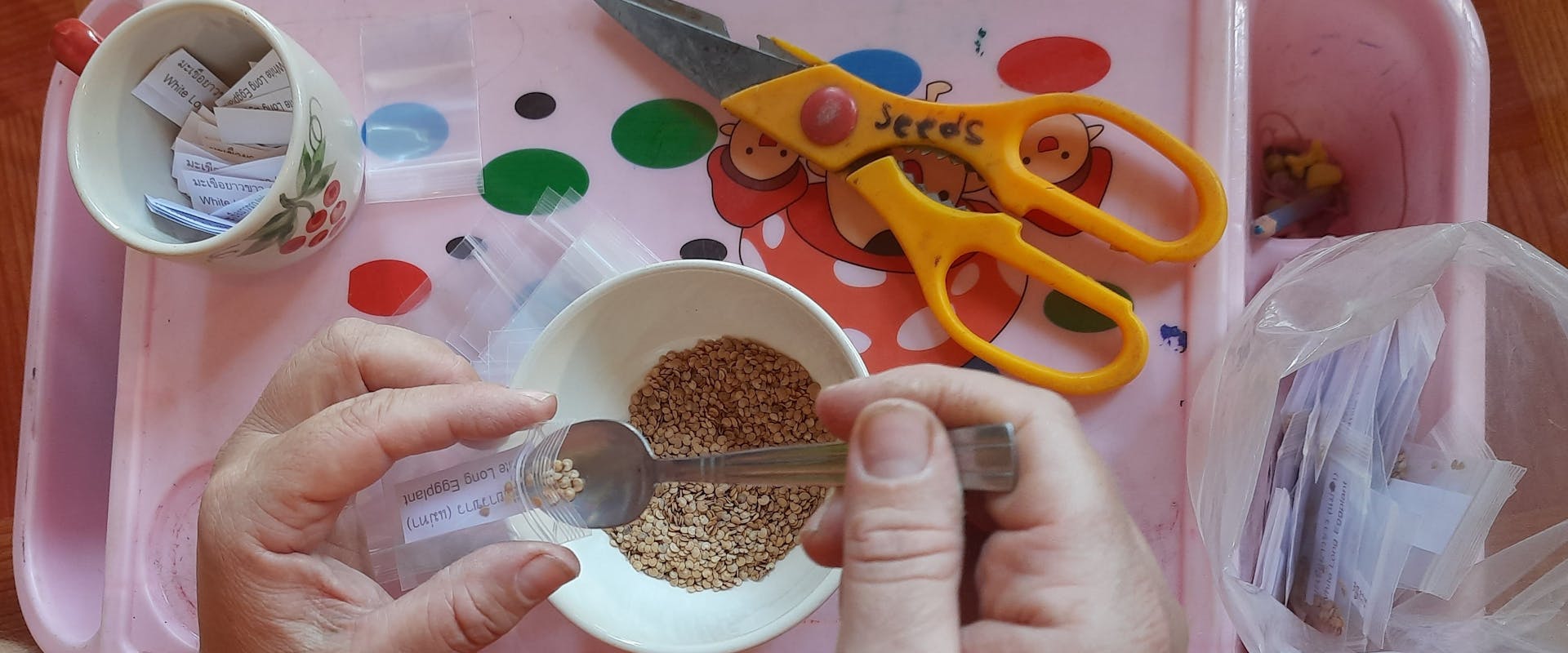
Seeds and Society
This article is part of the second issue of "The Sauce - on food, community and inspirations", a theme-based journazine, with SEEDS as the theme for this second issue. The inaugural issue on SOIL has a print and online edition available here.
Written by Lucas Hsu in participation of Pages Community Writing Workshop for the Seeds Issue, based on an interview by Vivian Lee on 5 May 2021, with Sheena Niamjan from Pun Pun Organic Farm, Chiang Mai, Thailand. Photos provided by Sheena, illustrations by Madhu Giri. Check out where Sheena and Pun Pun Organic Farm are located on this map, along with other practitioners, gardens, farms and seed-saving spaces!
Technical terms in this article are linked to a glossary. If there are terms and phrasing you would like to add to the glossary, please let us know here.
“When other people are getting text-neck, we are getting seed-saving necks instead”, joked Sheena Niamjan, Pun Pun’s longtime volunteer turned community resident. Having moved to Thailand in 2010 to teach environmental education at international schools, Sheena joined the Pun Pun family while looking for seeds to use in her education programmes.
Sheena’s unfortunate affliction of seed-saving neck was the result of an exceptionally wet season at the beginning of 2020 - when the rainy season brought too much moisture to Pun Pun’s seed storage units, causing mould to grow on the seeds. As a result, Sheena and other volunteers and community members on the organic farm had to painstakingly sift through thousands of seeds to separate the good ones from the bad.
But as much as this sounds like tedious work, the volunteers and community members at Pun Pun are no strangers to it. Based out of a village in Chiang Mai in Northern Thailand, the center for self-reliance prides itself for being able to produce enough seeds for themselves and others - so much so that people around the world can write in to request for surplus seeds to be sent to them.
With the COVID-19 pandemic, a surge in requests prompted Pun Pun to streamline their seed distribution system. The newly built Seed Center Room - a solid mud house with little cubby holes - helps to consolidate the seeds so that volunteers can more easily pack and send them away.
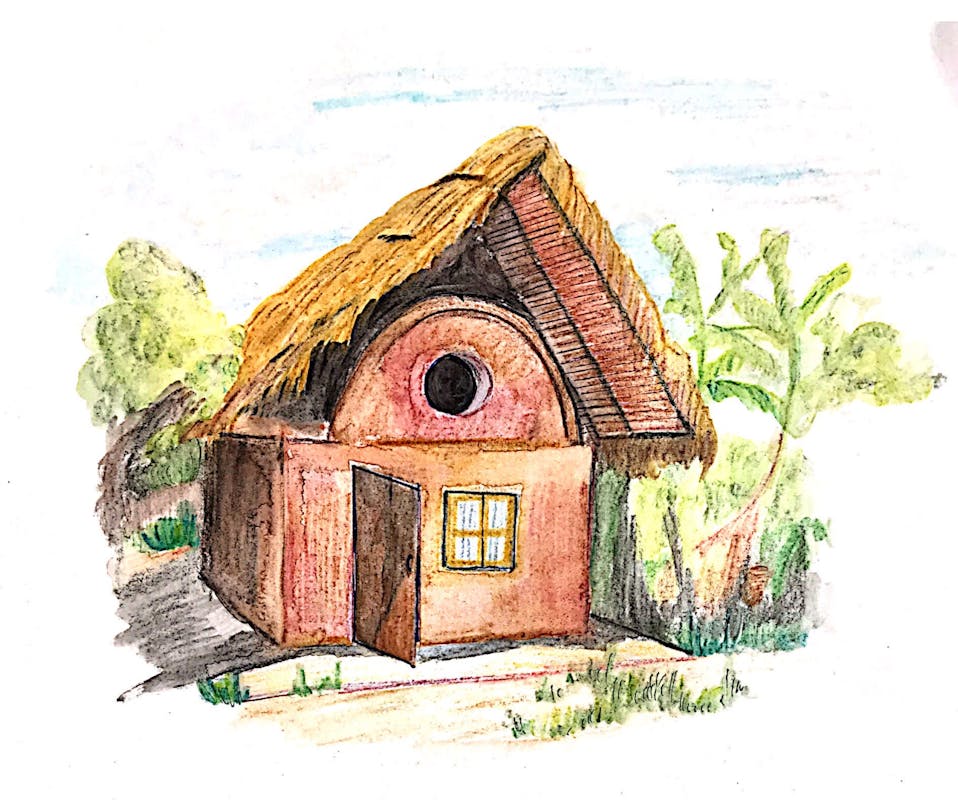
An illustration of a mud house in Pun Pun, based on a photograph on Pun Pun's website.
Guiding this programme is the philosophy that seeds lie at the nexus between humans and nature. With COVID-19 restrictions making us pay more attention to where our food comes from, this relationship more apparent than ever.
“It was really interesting to see how the first thing people thought of was food. At the markets everybody was getting concerned about where their food was coming from, who's touching that, where it was being grown, and how it was grown.”
But more importantly, she explained that planting one’s own food is crucial to understanding their relationship with the environment. Seeds have different growing seasons, and are adapted to specific soil conditions. As such, the ingredients available to a local community are necessarily shaped by what can be grown there.
Recounting the first time she fully appreciated this, Sheena described the time she brought some seeds back to Canada for her sister to grow.
“The Thai variety has a really long growing season, and the city we came from has a really short one. So even though she had them in a greenhouse, snow started falling on the ground before she got any tomatoes. It was then when I realised that they're localized for Thailand, not Canada.”
In a way, this means the food a community eats is imbued with rich meaning and significance. Beyond its physical ingredients, the food we eat is a reflection of the local environment (in what can be grown), the way its society functions (in its industrial processes), and its local culture (in how food is prepared).
Elaborating on how food embodies the local culture of community, Sheena pointed out how cultures of care at Pun Pun are exemplified by the love that goes into the cooking.
“People are happy to be on rotation for the cooking team, and they put a lot of love into it. We're not filling things with random stuff, it's all very well selected and fresh. I think that freshness is incomparable, that vital taste of life energy is going to be in that food.”
Sheena also commented on how this makes food an embodiment of a reciprocal relationship between humans and nature - we take what is given by the land and use it to sustain ourselves. In return, we treat nature with the respect it deserves.
When asked which dish best describes Pun Pun, Sheena cited a salad of green amaranth, limpha (Indian trumpet), makaam pak (tamarind leaves) and moringa as an apt reflection of Pun Pun’s name.
Inside Pun Pun's Seed Center Room, housing a myriad of seeds, and hands at work with these seeds.
The word 'Pun' in Thai has two meanings: the first means, “a thousand”, while the second means “variety”.
It’s because of this idea of variety, 80% of the people here are Thai, but even then we are all from different places - we’ve got people from the south, we’ve got people from the northeast, and there’s me, [a foreigner]. So I think when you have people from all over the place thrown into the mix, it’s kind of like a metaphor for the many different varieties of vegetables growing here.
— Sheena
Sheena also voiced her concerns over large agribusinesses. With the influence of big corporations still dominant in the food industry, consumers often find themselves becoming detached from the process of producing their own food. This makes it harder for them to appreciate the reciprocal relationship between them and nature.
Even after 11 years with Pun Pun, Sheena’s confidence in the initiative’s cause is unwavering. Her belief in the role that food plays in community building and respecting nature has inspired many who have had the privilege to work with her, and has helped many to reimagine sustainable living.
I have been growing my own food for 25 years and always wonder: where do the seeds come from? And so, when we start this discussion of where seeds come from, and who owns the seeds, we open ourselves to the conversation about what these seeds stand for. This is a big issue, and we need to make it a frontline one.
— Sheena
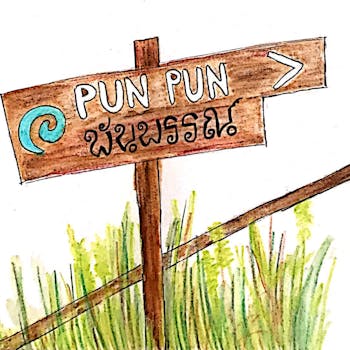
In the spirit of Pun Pun advocating for seed saving, Pun Pun shares seeds via donation. For more information, click here.
This article is part of Beyond Borders. Check out this community seed map to see who else is doing their part to save and share seeds!
As part of the SEEDS issue, we have made this map with the kind support of Kontinentalist. If you are a seed-saver or know of someone or other communities active in seed-saving and distributing initiatives, we invite you to contribute and add to the map! Simply email us at foodscapepages@gmail.com.
We hope you have enjoyed this article! Next, we have Seeds and Community Empowerment.
Click here if you would like to return to the content page.
About the author
Lucas Hsu is a third year Environmental Studies (ES) major at Yale-NUS college. He is majoring in ES because he finds the connection between culture and the environment to be very interesting. He believes this knowledge will shed light on why we make certain decisions - and help us retell stories in ways that will enable positive change. As an aspiring Geography teacher, he also hopes to motivate his students to engage in issues of societal concern and reflect on the ethical considerations of decision making.
Share this article
Dig Around
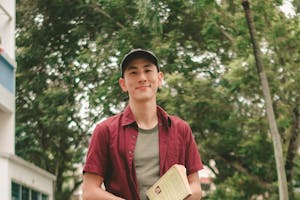
Chris - on homecoming; unpacking "sustainability", self-care for farmers and gardeners, and reality checks
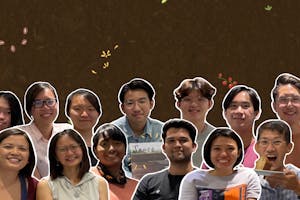
Landing on a new Page
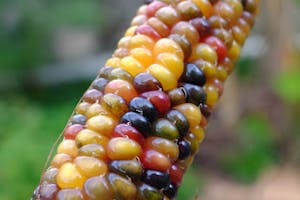
Let's Put the Culture Back into Agriculture
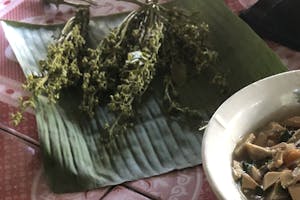
Learning what food sovereignty means | เรียนรู้ว่าอธิปไตยทางอาหารหมายถึงอะไร
Contact Us
Drop us an email or DM on Instagram if you would like to give us feedback, support us in any way, or just to connect!
Foodscape Collective
Foodscape Collective is a ground-up community with a mission to co-create a fair and inclusive circular food system for all. We work together to create communities and livelihoods through collaborative and supportive practices.
Copyright (C) 2025 - Foodscape Pages. All Rights Reserved